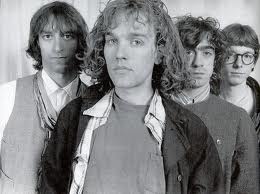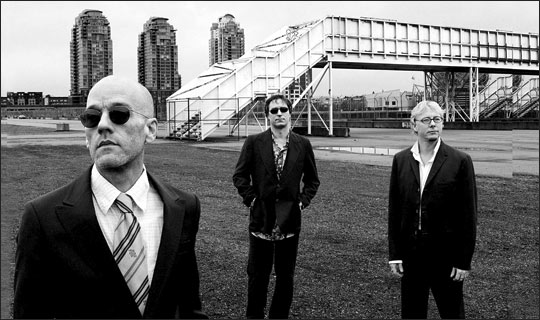 It shouldn’t have come as a surprise after 30 years, but still there was something jolting about the statement Tuesday that the band was calling it quits.
It shouldn’t have come as a surprise after 30 years, but still there was something jolting about the statement Tuesday that the band was calling it quits.
“As lifelong friends and co-conspirators,” they said in a statement, “we have decided to call it a day as a band.”
“During our last tour, and while making ‘Collapse Into Now’ and putting together this greatest hits retrospective; we started to ask ourselves ‘what next?’,” bassist Mike Mills said. “Working through our music and memories from over three decades was a hell of a journey. We realized that these songs seemed to draw a natural line under the last 31 years of our working together. The time just feels right.”
“A wise man once said the skill in attending a party is knowing when it’s time to leave,” said lead singer Michael Stipe. “We built something extraordinary together. We did this thing. And now we’re going to walk away from it. I hope our fans realize this wasn’t an easy decision; but all things must end; and we wanted to do it right, to do it our way.”
Said guitarist Peter Buck, who has been involved in a number of side projects, “One of the things that was always so great about being in R.E.M., was the fact that the records we made and the songs we wrote, meant as much to our fans as they did to us. It was, and still is, important to us to do right by them. Being a part of their lives has been an unbelievable gift.”
A release of a greatest hits collection in November will be the last act of the band.
For a generation of us, it represents the end of an era, when R.E.M. appeared out of Athens, Ga., as a scruffy post-punk band who illuminated music with scene with jangly guitar and indistinct lyrics, with a dark mystery that hung like kudzu on their album covers.
When I saw one of their first club tours, from out of their own vans, I recall their taking their guitars with them from the stage during breaks (perhaps learning a lesson from a previous gig).
The band toured incessantly in those early days, and I got to see them in clubs from the Drumstick in Lincoln, Neb., to the I-Beam in San Francisco.
After a show at The 20’s in Omaha, I got them to actually come to my house for an after party, with Peter Buck thumbing through my albums, Stipe talking music with my roommate and Mills hanging out until late. (It was my only rock star at my party moment).
 They got big sometime in there, when “Losing My Religion” went No. 1 and from then on saw them only in arenas and amphitheaters, where they were always thoughtful headliners to those opening. Radiohead opened both their shows at the Meadows Music Theatre in Hartford.
They got big sometime in there, when “Losing My Religion” went No. 1 and from then on saw them only in arenas and amphitheaters, where they were always thoughtful headliners to those opening. Radiohead opened both their shows at the Meadows Music Theatre in Hartford.
At Bill Clinton’s inaugural in 1992, I got to see Stipe and Mills join Larry Mullen and Adam Clayton to play U2’s “One.” group. And over the years I got to talk to R.E.M. members as a journalist.
In 1995, Stipe told me that despite its move from years on tiny club stages to the largest amphitheaters, the band tries to adjust nightly according to the mood of the crowd and changes its set on the fly. “With a few looks to each other, we establish where it is we’re going,” Stipe said. “We don’t try to look professional. We’ve done that all along.”